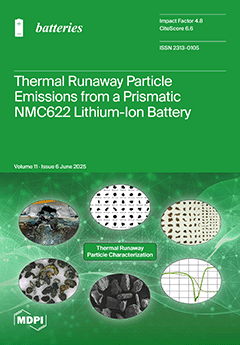Objective: The rapid growth of electric vehicle (EV) adoption has led to an unprecedented increase in lithium-ion battery (LIB) demand and end-of-life waste, underscoring the urgent need for effective recycling strategies. This review evaluates current progress in EV battery recycling and explores future prospects.
Design: Review based on PRISMA 2020.
Data sources: Scientific publications indexed in major databases such as Scopus, Web of Science, and ScienceDirect were searched for relevant studies published between 2020 and 15 April 2025.
Inclusion criteria: Studies were included if they were published in English between 2020 and 15 April 2025, and focused on the recycling of electric vehicle batteries. Eligible studies specifically addressed (i) recycling methods, technologies, and material recovery processes for EV batteries; (ii) the impact of recycled battery systems on power generation processes and grid stability; and (iii) assessments of materials used in battery manufacturing, including efficiency and recyclability. Review articles and meta-analyses were excluded to ensure the inclusion of only original research data.
Data extraction: Data were independently screened and extracted by two researchers and analyzed for recovery rates, environmental impact, and system-level energy contributions. One researcher independently screened all articles and extracted relevant data. A second researcher validated the accuracy of extracted data. The data were then organized and analyzed based on reported quantitative and qualitative indicators related to recycling methods, material recovery rates, environmental impact, and system-level energy benefits.
Results: A total of 23 studies were included. Significant progress has been made in hydrometallurgical and direct recycling processes, with recovery rates of critical metals (Li, Co, Ni) improving. Second-life battery applications also show promise for grid stabilization and renewable energy storage. Furthermore, recycled batteries show potential in stabilizing power grids through second-life applications in BESS.
Conclusion: EV battery recycling is a vital strategy for addressing raw material scarcity, minimizing environmental harm, and supporting energy resilience. However, challenges persist in policy harmonization, technology scaling, and economic viability. Future progress will depend on integrated efforts across sectors and regions to build a circular battery economy.
Full article





